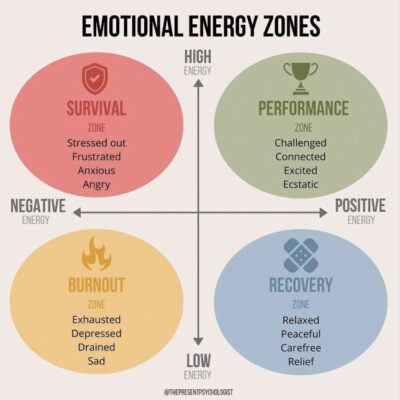Introduction
Effective communication is the cornerstone of successful management. Whether you are a seasoned executive, a mid-level manager, or an aspiring leader, the ability to communicate effectively is paramount in achieving your professional goals and fostering a positive work environment. This academic account aims to provide hands-on advice on how to communicate effectively in a management position, covering key principles, strategies, and practical tips that can be applied in various managerial roles.
Section 1: The Foundations of Effective Communication in Management
1.1 Clarity and Conciseness
In management, clarity and conciseness are non-negotiable. Your messages should be clear and to the point, leaving no room for misinterpretation. Avoid jargon, complex terminology, and unnecessary details. Use plain language that resonates with your audience, making it easy for them to grasp the essence of your communication.
1.2 Active Listening
Effective communication is not a one-way street. Listening is just as crucial as speaking. Active listening involves fully engaging with the speaker, demonstrating empathy, and asking questions to clarify points. Managers should strive to understand their team’s concerns and feedback, creating an environment of trust and collaboration.
1.3 Adaptability
Different situations and team members require different communication approaches. A manager must be adaptable, tailoring their communication style to suit their audience. Some team members may prefer face-to-face meetings, while others may prefer written updates or virtual discussions. Recognise and respect these preferences.
1.4 Empathy
Empathy is the ability to understand and share the feelings of others. It plays a critical role in management, as it allows leaders to connect with their team on a deeper level. Showing empathy toward employees’ concerns and challenges can build strong bonds and increase morale.
Section 2: Communication Strategies for Effective Management
2.1 Transparency
Transparency is a fundamental principle in management communication. Openness and honesty create trust and credibility. Share relevant information about organisational changes, objectives, and challenges. By being transparent, you foster an environment where employees feel informed and valued.
2.2 Feedback
Feedback is a two-way street. Managers should encourage open and honest feedback from team members. Constructive feedback can provide valuable insights for improvement and can help resolve issues promptly. Cultivate a culture of feedback where employees feel comfortable expressing their opinions.
2.3 Conflict Resolution
Conflict is inevitable in any workplace. Managers must be skilled in addressing conflicts in a respectful and diplomatic manner. Instead of avoiding conflicts, approach them with a problem-solving mindset. Listen to both sides, identify common ground, and work towards a resolution that benefits everyone involved.
2.4 Timeliness
Timely communication is vital in the fast-paced world of management. Ensure that important messages are conveyed promptly. Meeting deadlines, keeping employees informed of project progress, and providing timely responses to queries are all part of effective communication.
Section 3: Practical Tips for Managers
3.1 Written Communication
Effective written communication is essential for documenting strategies, sharing information, and making compelling cases for various initiatives. Here are some tips for improving written communication:
- Structure your messages logically, with a clear introduction, body, and conclusion.
- Use bullet points and headings to break up complex information.
- Proofread your messages to eliminate errors.
- Keep emails and reports concise, focusing on key points.
3.2 Non-Verbal Communication
Non-verbal cues play a significant role in communication, especially in face-to-face interactions and virtual meetings. Be mindful of your body language, facial expressions, and tone of voice. Here are some non-verbal communication tips:
- Maintain eye contact to show engagement and confidence.
- Use gestures to emphasise key points, but avoid excessive movement.
- Pay attention to your tone of voice, ensuring it matches the message you’re conveying.
3.3 Presentation Skills
Managers often need to present ideas and data to teams or higher-ups. Effective presentation skills can make your message engaging and memorable:
- Use visuals (e.g., slides or graphics) to support your points.
- Craft a compelling narrative to guide your audience through the presentation.
- Practice your delivery to ensure a confident and authoritative presence.
3.4 Cultural Sensitivity
In today’s globalised world, cultural sensitivity is paramount, especially if you manage diverse teams or interact with international partners. Here’s how to navigate cultural differences:
- Research and understand the cultural norms and communication styles of the people you’re interacting with.
- Show respect for cultural traditions and practices, and be open to learning from different perspectives.
- Be aware of potential cultural misunderstandings and be ready to address them.
Section 4: Advanced Communication Strategies for Managers
4.1 Conflict Management
Conflict is a natural part of any workplace, but effective managers can turn conflicts into opportunities for growth and improvement. Some advanced strategies for managing conflicts include:
- Facilitating open dialogues where all parties can express their views.
- Identifying underlying issues causing conflicts and addressing them.
- Implementing team-building exercises to improve collaboration and prevent future conflicts.
4.2 Emotional Intelligence
Emotional intelligence (EQ) is the ability to recognise, understand, and manage one’s own emotions and the emotions of others. Managers with high EQ can foster a positive work environment and build strong relationships. To enhance your emotional intelligence:
- Practice self-awareness by reflecting on your emotions and reactions.
- Empathise with your team members and try to understand their feelings and perspectives.
- Develop strategies to manage emotions, especially during stressful situations.
4.3 Crisis Communication
Managers may need to communicate effectively during crises, such as financial downturns, natural disasters, or public relations issues. Effective crisis communication involves:
- Quick and transparent updates to stakeholders about the situation.
- Clear guidance on how the organisation is addressing the crisis.
- Empathetic messaging that acknowledges the impact on employees and customers.
Section 5: Leadership and Effective Communication
5.1 Leading by Example
Effective communication begins with leadership. Managers who lead by example set the standard for communication within their teams. If you expect open and respectful communication, you must demonstrate these qualities in your own interactions.
5.2 Motivating Through Communication
Motivation is a key aspect of effective leadership. Managers can use communication to inspire and motivate their teams. Share the organisation’s vision, set clear goals, and provide regular feedback to keep employees engaged and committed to their work.
5.3 Coaching and Mentoring
Managers often play the role of coach and mentor to their team members. Effective coaching and mentoring involve guiding employees, providing constructive feedback, and helping them develop their skills and careers. These strategies require strong communication skills, including active listening and empathy.
Conclusion
Effective communication is the linchpin of successful management. Managers who prioritise clarity, active listening, adaptability, empathy, and other key communication principles will not only achieve their professional goals but also create a positive work environment that fosters collaboration and growth. By following the hands-on advice provided in this academic account, managers can enhance their communication skills and become more effective leaders in their respective organisations.
#EffectiveCommunication #Management #Leadership #Clarity #Transparency #Feedback #ConflictResolution #Timeliness #PresentationSkills #EmotionalIntelligence




